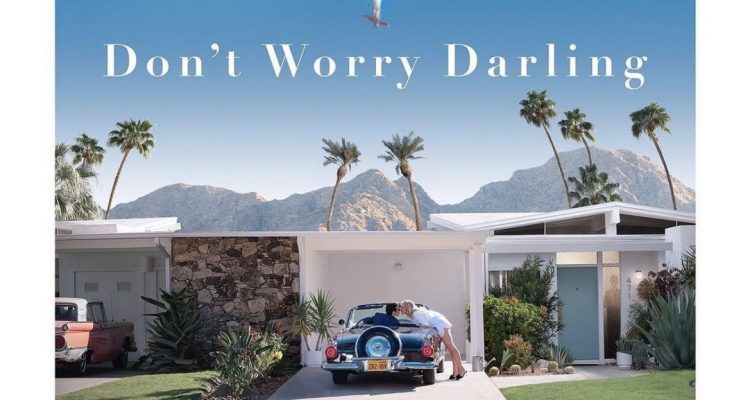When it comes to sophomore feature films or critically acclaimed debuts, a lot can be placed on the filmmaker’s shoulders. The fear of disappointing your fans while alleviating any surrounding discussions as a filmmaker is completely daunting. However, with recent films like “Little Women” and “Us,” if a filmmaker has control of the concept of the craft and has a compelling story to tell, it is all worth it.
“Booksmart” was a critical and box office sensation as it established Olivia Wilde as a promising filmmaker while also making her a household name. After years of speculation and recent months of drama, Wilde’s second feature was released.
“Don’t Worry Darling” stars Harry Styles, Florence Pugh and Chris Pine and tells the story of a couple living in a 1950’s neighborhood. As time moves forward, more secrets about the community begin to unravel.
With the passage of time, my thoughts on Olivia Wilde’s “Booksmart” have soured. While I do appreciate what the film is trying to say about mainstream comedies, Wilde appears only willing to make her movies seem more important than they are. People throw comparisons to “Superbad” often, and it really is one and the same. What “Booksmart” gets wrong is trying too hard to be for our generation, and what makes “Superbad” so universally acclaimed is its timeless relevancy and near-iconic lines/dialogue. However, I was willing to give Wilde the benefit of the doubt due to Pugh’s track record as an actress recently.
Before I discuss the film, it is important to discuss the big elephant in the room: the film’s press run/publicity. While I will not give an opinion, no drama has kept me more glued than these rumors. And while the drama surrounding the film is very entertaining, I cannot say the same about the film. “Don’t Worry Darling” suffers from a messy narrative, empty thematics, shallow character writing and weak performances.
Though the cinematography is nice looking and Pine and Pugh turn in good performances for what they are given, Styles is just abysmal here. There is a reason why his acting has been left absent from the film’s marketing. It feels like a strange blend of self-seriousness and “camp.” However, with what Styles has been talking about in regards to the film, his performance feels like it was taken from a YouTube video of “the best acting performances in film.” What I mean by this is that Styles always rebels in the bombastic and loud screaming, but feels emotionally vacant when the film discusses the romance between him and Pugh. The film’s pacing feels all over the place, and I found myself bored by nearly the one-hour mark of a 123-minute-long film. “Don’t Worry Darling” throws in too many narrative threads that feel either forgotten by the film’s third act or tonally don’t work for what the story it is trying to tell.
Wilde’s direction feels too broad like she is making a near-blockbuster-size film. However, it is just a highly-budgeted drama about manipulation. Wilde portrays themes in a very unsubstantiated and shallow attempt at subtlety. Once you understand the film’s main thesis, that is all it has to it. But, once Wilde throws a twist in the film’s latter half, it completely contradicts the entire film’s main argument of pro-feminism/manipulation.
I would not call myself disappointed by “Don’t Worry Darling,” due to my disinterest in Wilde as a filmmaker. She thinks too mainly in the scope of what she is trying to accomplish in terms of narrative elements and also has an inept mindset on thematics and subtlety. Given the public’s perception of Wilde’s performance post-drama, I also would not be upset if Wilde did not make another film. However, she needs to understand how to professionally operate on a set.


Leave a Reply